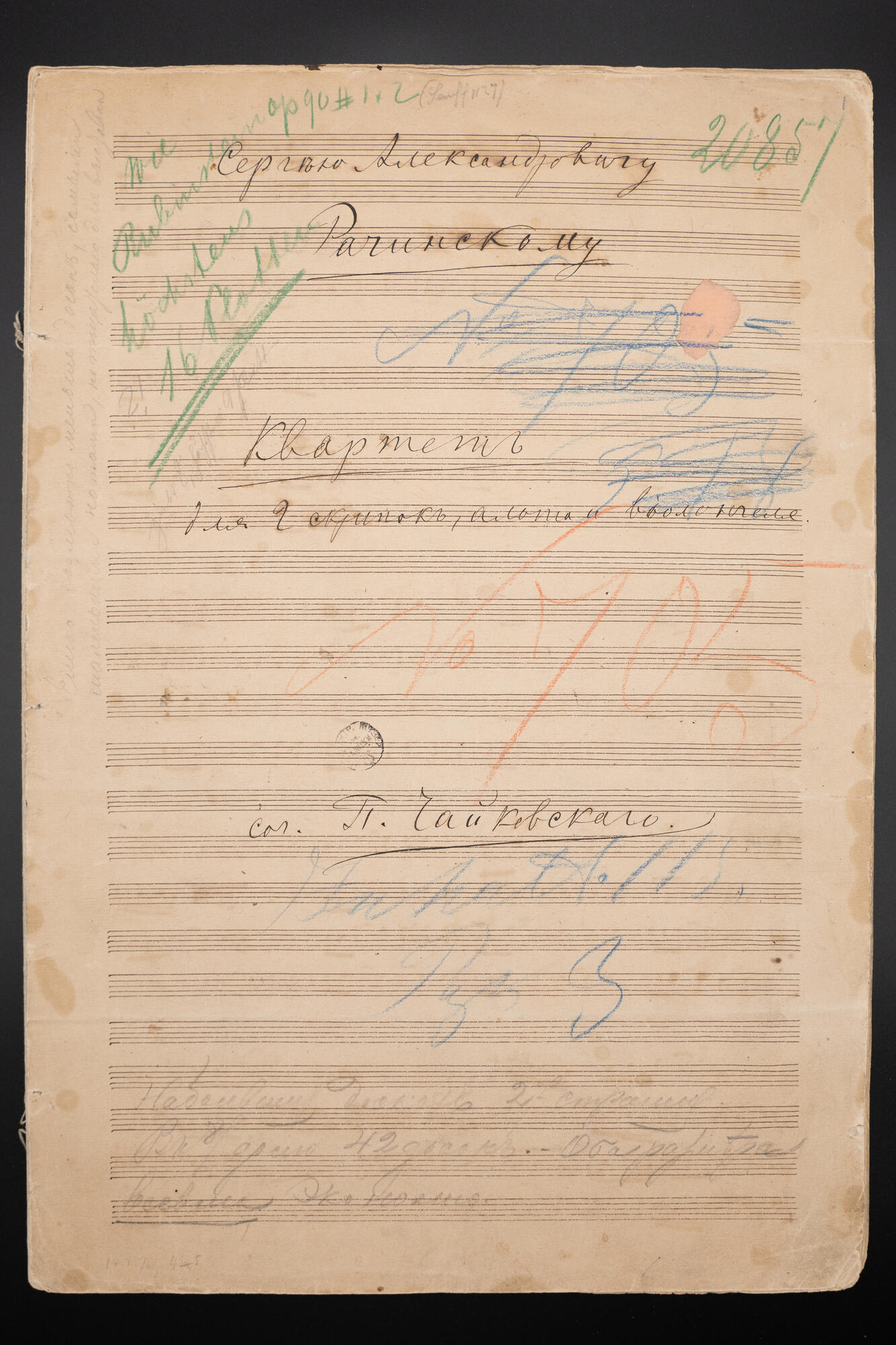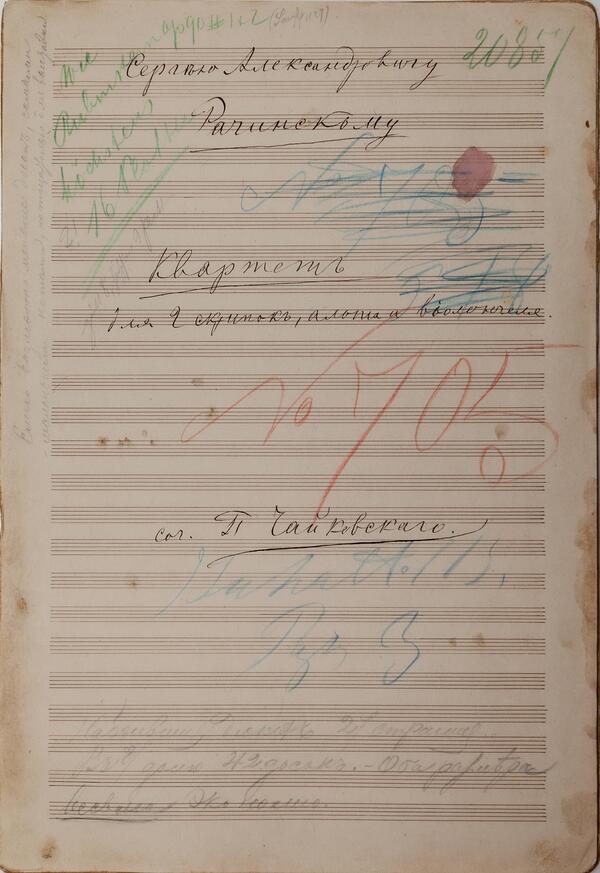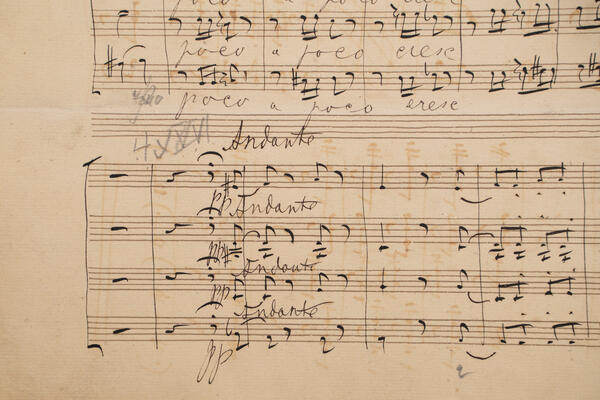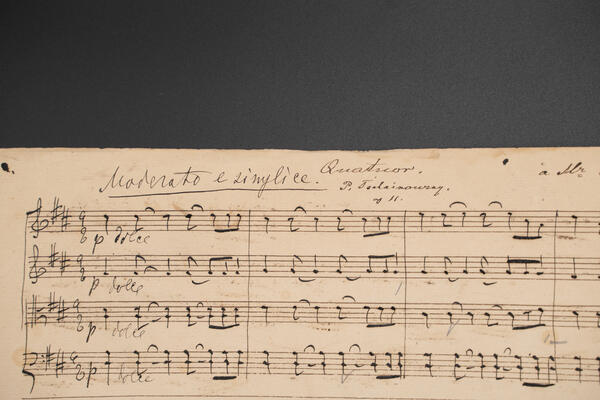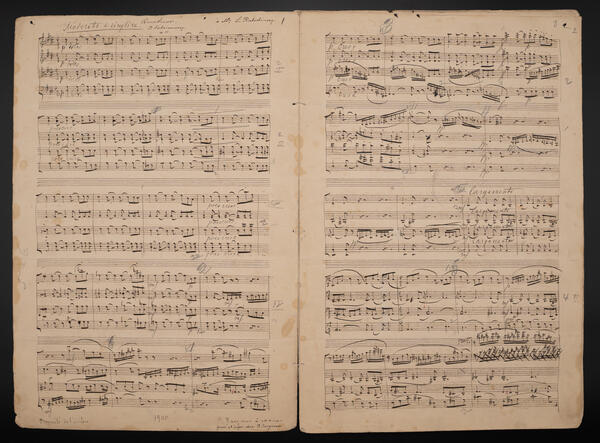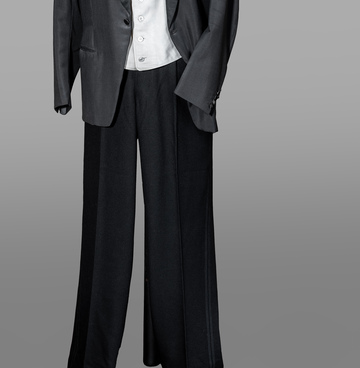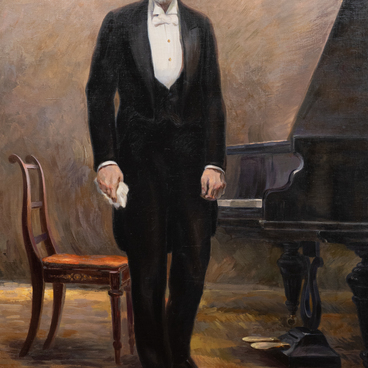When Pyotr Ilyich Tchaikovsky dedicated his String Quartet No. 1 to Sergey Rachinsky, a professor of botany at Moscow University, the latter exclaimed, “This is a patent for immortality!”.
Sergey Rachinsky, a poet, literary critic, prominent figure in the field of public education, as well as the author of the libretto to the composer’s unfinished operas “Mandragora” and “Raymond Lully”, had a significant influence on Tchaikovsky.
Quartet No. 1, in D Major, in four movements was composed and instrumented in February 1871 in Moscow for the composer’s concert, arranged on the advice of Nikolay Rubinstein in the Small Hall of the Assembly of the Nobility on March 16 of the same year. The first performers of the Quartet were Tchaikovsky’s outstanding colleagues from the Moscow Conservatory: the Czech virtuoso violinist Ferdinand Laub, Ippolit Pryanishnikov (violin), the composer and violinist who performed the viola part Ludwig Minkus, and the cellist and editor of Tchaikovsky’s cello compositions Wilhelm Fitzenhagen.
In December 1876, Tchaikovsky met Leo Tolstoy. The writer visited the composer several times. But, of course, the crowning event of their December meetings was a musical evening arranged by Nikolay Rubinstein at Tchaikovsky’s request at the conservatory, where the First Quartet was performed.